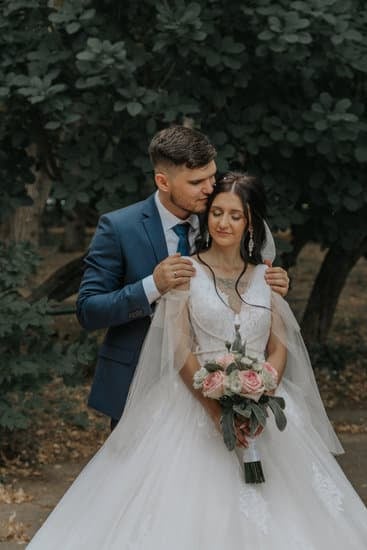How much do wedding officiants make? This is a common question for those considering a career in the wedding industry. Wedding officiants play a crucial role in the marriage ceremony, guiding couples through their vows and legalizing their union.
In this article, we will explore the factors that influence wedding officiant fees, average salaries nationwide, regional disparities, and how experience and specialization impact earnings. Additionally, we will provide tips for wedding officiants looking to maximize their income in this rewarding profession.
Wedding officiants are often unsung heroes of the wedding industry. They are responsible for overseeing the ceremony and making sure everything runs smoothly on one of the most important days in a couple’s life. Despite their vital role, many people are unaware of the intricacies of being a wedding officiant including what they do and why they are essential to a successful marriage ceremony.
Aspiring and current wedding officiants need to understand the financial side of the profession to make informed decisions about their careers. Factors such as location, experience, and specialization all play a significant role in determining how much a wedding officiant can earn. By examining national statistics on average salaries and exploring regional differences in fees, individuals can gain insight into what to expect when pursuing this career path.
The Role of a Wedding Officiant
Wedding officiants also provide support and guidance to the couple throughout the wedding planning process. They are often responsible for obtaining all required legal documents, such as marriage licenses, and ensure that everything is in order for the big day. Additionally, they offer advice on different ceremony options and traditions based on the couple’s preferences. On the wedding day, officiants are responsible for leading the ceremony with professionalism, warmth, and grace.
Many factors influence how much wedding officiants make. These include geographical location, experience level, demand for their services, type of ceremonies performed (religious or secular), added services offered (premarital counseling or vow writing), among others. The average annual salary for a wedding officiant in the United States is $39,409 according to ZipRecruiter. However, this number can vary significantly depending on various factors such as those mentioned above.
| Geographical Location | Average Annual Salary |
|---|---|
| New York City | $55,120 |
| Los Angeles | $48,890 |
| Chicago | $44,302 |
Factors That Influence Wedding Officiant Fees
One of the biggest questions that aspiring wedding officiants have is, “How much do wedding officiants make?” The answer to this question is influenced by several factors, all of which play a role in determining the fees that wedding officiants can command. Understanding these factors can help both new and experienced officiants determine their worth and set appropriate fees for their services.
Educational Background and Training
One factor that influences the fees charged by wedding officiants is their educational background and level of training. Officiants who have completed formal training programs or who have obtained certifications in areas such as marriage counseling or religious studies may be able to command higher fees for their services. This additional education and expertise can provide couples with added confidence in their choice of officiant, justifying higher fees.
Geographic Location
Wedding officiant fees can also be influenced by geographic location. In areas with higher costs of living or where demand for wedding services is particularly high, officiants may be able to charge more for their services. Conversely, in more rural or economically depressed areas, officiant fees may need to be adjusted to align with local market conditions.
Personal Branding and Marketing Efforts
The personal branding and marketing efforts of a wedding officiant can also impact the fees they are able to command. Officiants who have developed a strong brand, established a positive reputation within their community, and actively promote their services through targeted marketing efforts may be able to charge higher fees than those who do not invest as much time and effort into these aspects of their business.
Average Wedding Officiant Salaries
Wedding officiants play a crucial role in the wedding ceremony, as they are responsible for legally marrying couples and guiding them through one of the most significant moments of their lives. Given the importance of this role, many people wonder how much wedding officiants make. Nationwide statistics provide valuable insights into the average earnings of wedding officiants, shedding light on the financial aspect of this profession.
According to data from the Bureau of Labor Statistics, the average annual salary for a wedding officiant in the United States is approximately $50,000. However, it’s essential to note that this figure can vary significantly based on factors such as location, experience, and specialization. In some regions, wedding officiants may command higher fees due to demand and cost of living, while those with extensive experience or unique skills may also earn more than the average.
In addition to traditional marriage ceremonies, many wedding officiants offer their services for destination weddings, vow renewals, and other specialized events. These additional services can contribute to an officiant’s overall earnings and provide opportunities for them to increase their income beyond standard ceremony fees.
| Location | Average Annual Salary |
|---|---|
| New York City | $60,000 |
| Los Angeles | $55,000 |
| Rural Areas | $45,000 |
Wedding Officiant Fees by Region
When it comes to wedding officiant fees, one of the biggest factors that come into play is the region in which the wedding will take place. Different areas have different standards and cost of living, which directly impacts how much wedding officiants make. For example, a wedding officiant in a major metropolitan area may be able to charge significantly more than one in a rural area due to the higher cost of living and demand for services.
In urban areas such as New York City, Los Angeles, or Chicago, wedding officiant fees tend to be higher compared to smaller towns or less populated regions. This is often due to the increased demand for wedding services in these areas, as well as the higher overall cost of living. Additionally, destination wedding locations can also command higher fees due to the travel and accommodation expenses incurred by the officiant.
Conversely, in more rural or less affluent regions, wedding officiant fees may be lower due to the lower overall economic activity and demand for such services. While there may still be a market for wedding officiants in these areas, they may need to adjust their pricing accordingly based on local economic conditions. Understanding these regional differences can help wedding officiants determine their pricing strategy and maximize their income potential.
How Experience and Specialization Impact Wedding Officiant Earnings
When it comes to being a wedding officiant, experience and specialization play a crucial role in determining how much you can make. Here are some of the key ways that these factors impact wedding officiant earnings:
Factors Affecting Experience and Specialization Impact on Earnings:
1. Expertise in Different Types of Ceremonies: Wedding officiants who specialize in conducting specific types of ceremonies, such as religious or cultural weddings, tend to command higher fees due to their specialized knowledge and understanding of the unique traditions and rituals involved.
2. Reputation and Reviews: Experienced wedding officiants who have built a strong reputation and received positive reviews from past clients may be able to charge higher fees for their services. This is because couples often place a premium on hiring someone with a proven track record for delivering exceptional ceremonies.
3. Referrals and Networking: Established wedding officiants who have been in the industry for a longer time are more likely to benefit from referrals and word-of-mouth recommendations, which can lead to a steady stream of bookings at higher rates.
Wedding officiants have the potential to earn varying incomes based on their level of experience and specialization within the industry. By honing their expertise, building a strong reputation, and leveraging their network, wedding officiants can maximize their earning potential while doing what they love. With the right approach, dedication, and continuous professional development, there are ample opportunities for success in this rewarding profession.
Tips for Wedding Officiants to Maximize Their Income
As a wedding officiant, there are several strategies you can employ to maximize your income and find success in your chosen career. Whether you are just starting out or have been officiating weddings for years, these tips can help you increase your earnings and grow your business.
Expand Your Services
One of the best ways to increase your income as a wedding officiant is to expand the services you offer. In addition to performing the ceremony, consider offering pre-marital counseling, vow writing assistance, or personalized wedding ceremonies. By providing additional services, you can justify charging higher fees and appeal to a wider range of couples seeking your expertise.
Build and Showcase Your Expertise
Couples want to hire an officiant who is experienced and knowledgeable about creating meaningful ceremonies. Consider obtaining specialized training or certifications in areas such as religious ceremonies, interfaith marriages, or same-sex weddings. Highlighting these credentials on your website and marketing materials can help set you apart from other officiants and command higher fees for your services.
Network and Market Yourself Effectively
In order to maximize your income as a wedding officiant, it’s crucial to effectively market yourself and build a strong network within the wedding industry. Establish relationships with local venues, event planners, photographers, and other wedding professionals who can refer clients to you.
Additionally, create a strong online presence through social media and a professional website that showcases testimonials from satisfied couples. By increasing your visibility and reputation within the industry, you can attract more clients willing to pay premium prices for your services.
By implementing these strategies and continuously refining your approach as a wedding officiant, you can increase your earning potential while delivering exceptional service to couples on their special day. With dedication and hard work.
you have the opportunity to create a successful and lucrative career as a wedding officiant.
With all these tips considered diligently alongside valuable experiences gotten over time; it is clear that being successful at this profession will indeed determine how much do wedding officiants make overall-making it an important aspect not only for those pursuing it but also those looking forward hiring one.
Conclusion
In conclusion, the potential for success as a wedding officiant is evident from the range of factors that influence their income. From nationwide statistics to regional disparities and the impact of experience and specialization, it is clear that there is a significant earning potential in this profession. Wedding officiants play an essential role in the marriage ceremony, and their compensation reflects this importance.
The nationwide average salary for wedding officiants is a good indicator of the earning potential in this field. However, it is important to note that there are regional variations in fees, with some areas commanding higher rates than others. This means that wedding officiants have the opportunity to maximize their income by catering to high-demand regions or specializing in specific types of ceremonies.
For those considering a career as a wedding officiant, the key is to understand the various factors that influence fees and to consider ways to maximize earning potential. By gaining experience, developing specialized skills, and offering additional services such as premarital counseling or custom ceremony writing, wedding officiants can command higher fees and make a successful living from this rewarding profession.
Ultimately, while the question “how much do wedding officiants make?” does not have a single answer, it is clear that with dedication and strategic choices, there is significant potential for financial success in this field. Wedding officiants provide a valuable service to couples on their special day, and they deserve fair compensation for their essential role in creating meaningful and memorable ceremonies.
Frequently Asked Questions
Who Pays the Most for a Wedding?
The cost of a wedding can vary widely depending on the location, scale, and specific preferences of the couple. Traditionally, the bride’s family has shouldered much of the financial burden for the wedding.
However, today it is becoming more common for both families and the couple themselves to contribute to the costs. In some cases, couples may choose to pay for their own wedding entirely.
Who Can Legally Officiate a Wedding in California?
In California, there are several individuals who are legally allowed to officiate a wedding ceremony. These include ordained ministers, priests, rabbis, and other religious leaders; judges and justices of peace; and current or retired government officials such as mayors or county clerks.
How Do I Become a Wedding Officiant in California?
To become a wedding officiant in California, individuals must first be legally recognized by a religious organization to perform marriage ceremonies if they are not a judge or government official. They must then complete and submit an application to become a Deputy Commissioner of Civil Marriages in order to perform secular (non-religious) wedding ceremonies.
Additionally, they must pay a filing fee and obtain a special marriage commissioner appointment from the County Clerk’s office in any county in California where they wish to perform weddings.

I have been involved in marriages for over 20 years helping couples and singles understand more about them.





